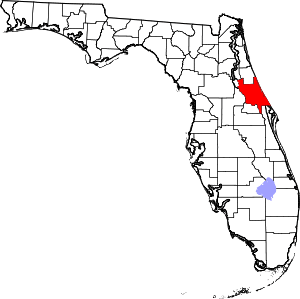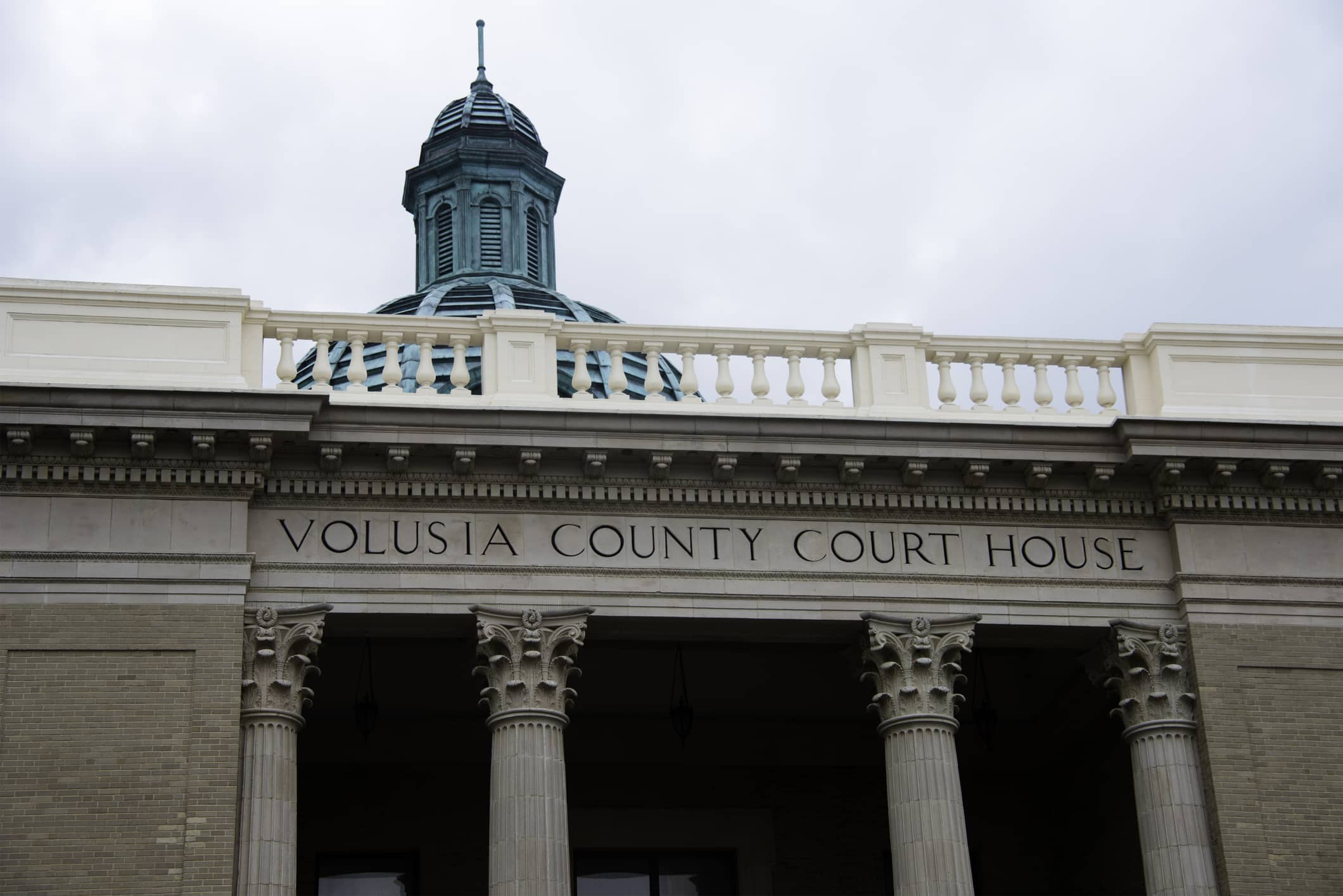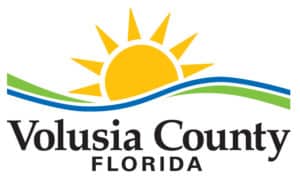Volusia County Probate Process for Residents & Non-Residents

In Volusia County, Florida, the probate process is a court-supervised procedure where a deceased person’s assets are identified, creditors are given a chance to file claims, and beneficiaries are determined. The Volusia County probate court ensures assets are properly distributed according to the decedent’s wishes or, in the absence of a will, according to Florida’s intestacy laws.

Florida Probate Process
When someone passes away leaving a valid Last Will & Testament, the original document must be filed with the 7th Judicial Circuit Court in Volusia County. For residents of DeLand or surrounding areas, the Volusia County probate court will handle all probate-related filings and proceedings. In cases where there is no will, probate assets are distributed under the Florida intestacy statute.
Probate cases in Volusia County are managed by the 7th Judicial Circuit Court. Based on the petitioner’s location, cases are assigned to one of the following courthouses:
- Kim C. Hammond Justice Center – 1769 E. Moody Blvd. Bunnell, FL 32110
- S. James Foxman Justice Center – 251 N. Ridgewood Ave. Daytona Beach, FL 32114
- Putnam County Courthouse – 410 St. Johns Ave. Palatka, FL 32177
- Volusia County Courthouse Annex – 125 E. Orange Ave. Daytona Beach, FL 32114
- Richard O. Watson Judicial Center– 4010 Lewis Speedway St. Augustine, FL 32084
- Volusia County Courthouse – 101 N. Alabama Ave. DeLand, FL 32724
Probate Assets

The most relevant factor in determining if a probate is necessary, is assessing if there are any probate assets, as opposed to non-probate assets. Probate assets are those titled in the sole name of the decedent, and do not have a beneficiary designation or POD feature. All probate assets are frozen and can only be transferred through the probate process. There are many types of non-probate assets, such as real estate titled in the sole name of the decedent, jointly held property, IRAs, and life insurance proceeds payable to a beneficiary, and more.
The first step in identifying probate assets is to confirm how the decedent’s real estate is titled, by visiting the Volusia County Property Appraiser. If the property appraiser report and most recent deed confirm that the real estate, aka real property, is in the sole name of the decedent, then a probate will be required in order to eventually sell or transfer the property. Often the goal is to sell the piece of real estate during the probate process, and to have proceeds divided among the identified beneficiaries. It is advisable to wait until an estate is open, and a personal representative is appointed before executing any type of sales contract.
The second step for identifying probate and non-probate assets is to check the mail of the decedent, since financial institutions and insurance companies will periodically send correspondence regarding accounts. The personal representative of the estate, or the immediate family members of the decedent, should have the decedent’s mail forwarded to a convenient location by requesting a change of address or mail forwarding with the United States Postal Service. The request can be made on the USPS website, or in person at a branch location.
Restricted Depositories
When it comes to sale of real property in estates and guardianships, all judges assigned to the 7th Judicial Circuit Court (Volusia County) require that the order needs to state that the sale proceeds will be held in either the attorney’s trust account, the estate, or guardianship restricted depository account until the order of the court says otherwise. This is included in a Petition for an Order to Sell Real Property and the authorization of the sale. If the sale transaction is identified as “homestead” property and if the claims period is not expired, then the order states the sales proceed.
Consult with an experienced Volusia County probate attorney for the best techniques for establishing a restricted depository and expediting the administration.
Ancillary Probate for Non-Residents
Ancillary probate is required when a non-Florida resident owns property in Volusia County. Ancillary probate is necessary to transfer or sell real estate, aka real property, located in any state other than the decedent’s domiciliary state.
After someone passes away, the first step in the probate process is to establish the domiciliary estate in the decedent’s state of residence. Once a personal representative, or executor is appointed for the domiciliary proceeding, the next step is to petition to initiate the ancillary probate in the county in which the real estate is located.
As an example, John lives in California but owns a vacation home in DeLand. When John passes away, his Last Will & Testament must be submitted to his local probate court in California to begin the domiciliary probate process. A second probate process must also be started in Volusia County, Florida to transfer the home in DeLand to his beneficiaries, or to clear title to a new owner via the sales process.
Generally, ancillary probate administration is required in Florida when someone who was not a Florida resident dies and:
- Owned Florida real estate
- Owned a Florida timeshare
- Owned Florida property or liability that would require the signature of an appointed personal representative in Florida for transfer, collect, or discharge
Ancillary probate in Volusia County, Florida can complicate the already time-consuming and sometimes costly probate process, but it is the only way to pass Florida real estate to the rightful beneficiaries. Because ancillary probate has the potential to prolong the domiciliary probate proceeding, it’s crucial to work with a skilled Florida ancillary probate attorney.
An experienced ancillary probate lawyer in Volusia County can assist with every step of the probate process, and potentially serve as a personal representative to prevent potential delays and finalize the probate as quickly and smoothly as possible.
If you need assistance with probate in Volusia County, Florida, contact the Florida Probate Law Firm for a free 30-minute consultation at (561)-210-5500.

The Florida Probate Law Firm proudly serves all municipalities in Volusia County, FL
- Daytona Beach
- Daytona Beach Shores
- DeBary
- DeLand
- De Leon Springs
- Deltona
- Edgewater
- Glencoe
- Holly Hill
- Lake Helen
- New Smyrna Beach
- North DeLand
- Oak Hill
- Orange City
- Ormond Beach
- Ormond-by-the-Sea
- Pierson
- Ponce Inlet
- Port Orange
- South Daytona
- West DeLand
If you need assistance with probate in Volusia County, Florida, contact the Florida Probate Law Firm for a free 30 minute consultation at (561)-210-5500.

Contact a Volusia County Probate Lawyer
Navigating the Volusia County probate process can be complex, especially when dealing with probate records, ancillary probate, or restricted depositories. Our experienced team at Florida Probate Law Firm can provide guidance, manage court filings, and ensure compliance with all Volusia County probate court requirements.
If you need assistance with probate in Volusia County, Florida, contact the Florida Probate Law Firm.

